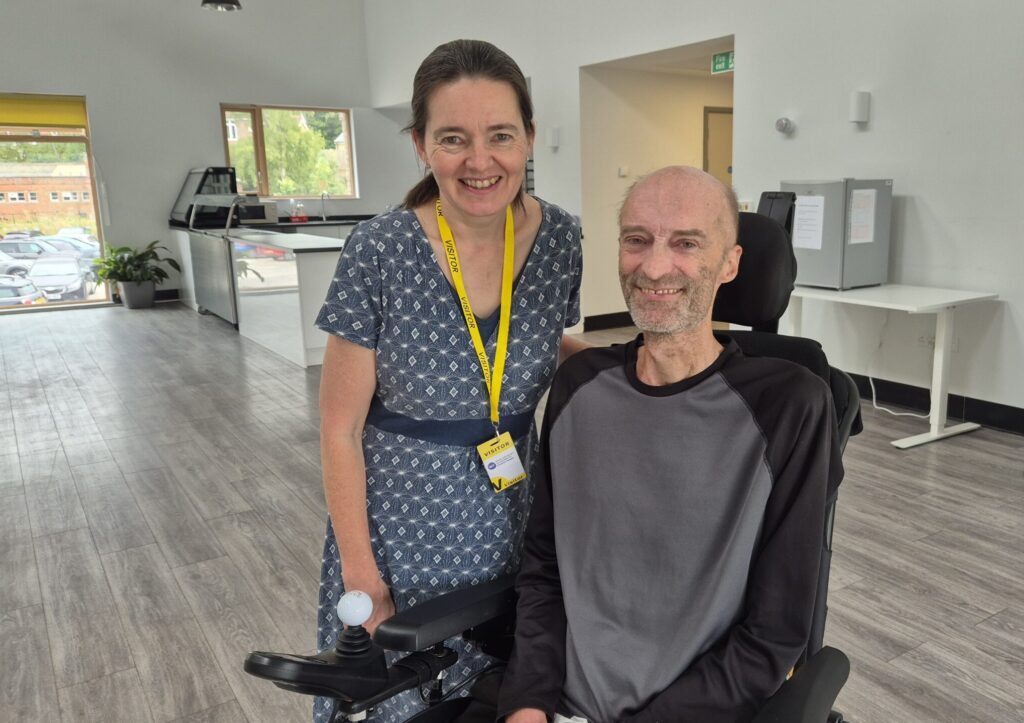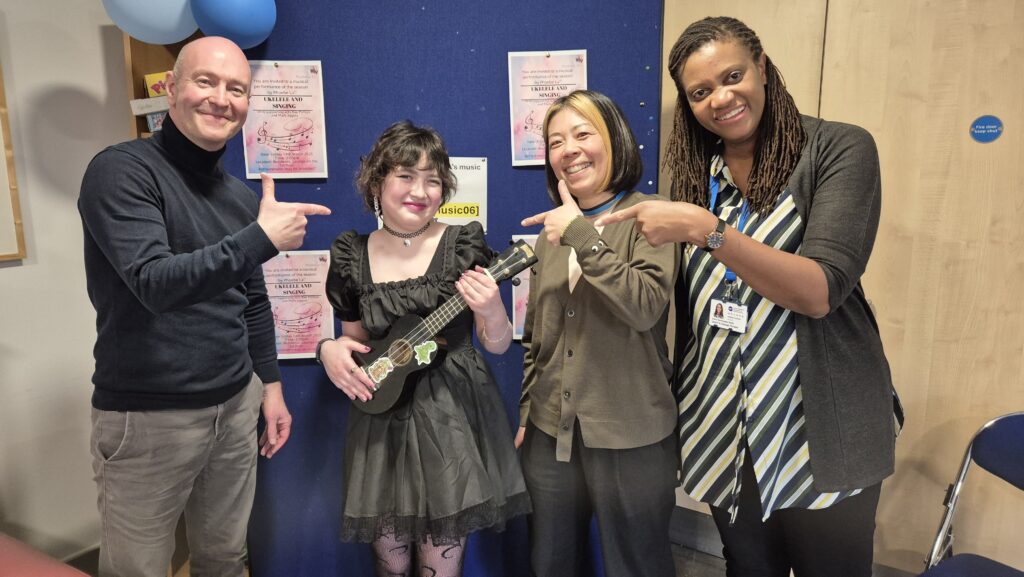Dushima is in her mid-30’s now and has mild cerebral palsy. She has weakness in the muscles and nerves along the left side of her body as a result of left sided hemiplegia. She tells her story of what learning to drive has been like with the support of QEF’s Mobility Service.
 “I originally came to QEF in 2003 for an assessment to see if I could learn to drive. I was actually treated at the hospital that used to be where QEF’s Mobility Services are now based, so I recognised a lot of it. This assessment flagged that I needed a steering aid and to drive an automatic car. I was going to Uni at that point and finding a driving instructor that could match my needs was pretty much impossible – even today it’s very difficult to find an instructor who can support my medical requirements in the area that I live.
“I originally came to QEF in 2003 for an assessment to see if I could learn to drive. I was actually treated at the hospital that used to be where QEF’s Mobility Services are now based, so I recognised a lot of it. This assessment flagged that I needed a steering aid and to drive an automatic car. I was going to Uni at that point and finding a driving instructor that could match my needs was pretty much impossible – even today it’s very difficult to find an instructor who can support my medical requirements in the area that I live.
Unfortunately, after University I had different issues – I had to focus on my mental health. I had to put much of my life on hold to try and deal with it and this meant postponing learning to drive as well. I had lost my father and my family dynamics changed as I grew up. This really changed my family structure and the amount of support that was available for my physical needs, but also the encouragement I needed to achieve my goals.
It would be life changing if I could learn to drive
I am dependent on public transport, but this isn’t always easy for me to access due to my balance issues; it can be crowded, and I hesitate on the gaps getting onto trains and buses. Other members of the public are not always considerate and my disability is not apparent to them. It would be life changing if could learn to drive, I just needed the confidence to balance my physical and mental health so I could live a more independent life and be more mobile.
Its not always easy to get to where you want to go on public transport – you are reliant on where public transport is concentrated. It’s not too bad where I live, but outside London it’s much harder and my brother lives in the countryside – in Cornwall. So, I either have a very long train journey or I am reliant on them for transport, which is expensive. Not being able to drive does limit where I can go and which friends and family I can see. It also restricts where I shop or what activities I do, as I can’t get to less well connected areas
If I could drive, I would be able to drive to work, get to medical appointments and do my shopping much more conveniently. My mum doesn’t have a car, so by doing this I am looking to support her as well. At the moment I am limited to just one bag of shopping per trip as that’s all I can carry. I have done online shopping in the past but that’s not always easy to obtain.
I was learning new things, my confidence was growing
A couple of years ago I felt able to continue learning to drive, so I contacted QEF for a new assessment, as it was 16 years since my last one, so lots of things had changed. I had my assessment in September 2019 which showed I needed a few additional elements to help me use indicators and ideally an electric hand brake and seat controls as well. I started lessons again in October 2019. The lessons were going well, and my instructor was really good and supportive. I was learning new things, my confidence was growing; I was developing my multi-tasking skills more, reacting to the road and managing the car. But then the service had to close due to the pandemic.
It was the safest thing to do at that time though, I didn’t feel safe with everything that was going on – I was anxious. This has been another pause in my learning to drive. It’s been unfortunate but I have been doing my theory again during lockdown. I passed my theory test back in 2007 but it lapsed due to my pause in learning. It’s putting theory into practice that I am missing out on, as I can’t practice outside lessons.
Their advice is invaluable – its not just about learning to drive
When they re-open I expect I will need to recap a little bit to crystalise knowledge again, but I won’t need to go back to the beginning again, just revise and recap. During the pandemic it’s been harder to get out and about as I’m on public transport all the time. Its not as safe as driving a private car, so it’s really good to have this potential.
If QEF’s mobility services hadn’t reopened it would be a huge loss. It would be extremely difficult to find another driving instructor that was able to provide for my needs and able to teach me. They also provide so much support with all the study, practical help for finding places to get adaptations on cars and the cars on the market that are most suited to my needs. Their advice is invaluable, it’s not just about learning to drive.“

